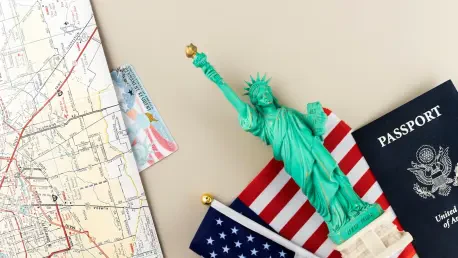Imagine stepping onto a college campus filled with the hum of diverse languages blending in hallways, classrooms, and libraries. This international symphony, essential to educational innovation, may soon wane as renewed U.S. immigration policies threaten the inclusion of international students. With the implementation of these policies, questions arise about the unintended consequences for the nation’s educational landscape and innovation capabilities.
Navigating Historical Impact and Global Trends
International students have long been pivotal to the competitiveness of U.S. higher education institutions. The infusion of diverse viewpoints enriches academic discourse, driving innovation and research excellence. Globally, countries are increasingly capitalizing on international education to bolster their economies and foster cultural exchange. In an interconnected world, this contribution cannot be overstated, as international students often become bridges between their home countries and their host nations, facilitating economic ties, diplomatic understanding, and technological exchanges that affect everyday lives.
Unpacking Recent Policies and Their Potential Ramifications
In recent years, the U.S. has seen significant shifts in immigration policy, driven by a focus on national security. The Trump administration paused student visa interviews globally, casting clouds of uncertainty for prospective students. Additionally, proposals such as the 15 percent cap on international student enrollment and increased social media vetting stirred debate. Critics argue these policies could degrade educational diversity, vital for fostering groundbreaking research. Consider the field of medical research, where international collaboration often leads to disease cure breakthroughs. Reduced diversity threatens to derail such interdisciplinary progress, diminishing the U.S.’s ability to maintain its leadership in innovation.
Voices of Concern and Divergent Perspectives
Former Education Secretary Arne Duncan criticized these policy measures as counterintuitive to the “Make America Great Again” ethos, arguing they hinder the inflow of global talent key to innovation and economic prosperity. Educators echo concerns about eroding the rich exchange environment that international students provide, which is crucial for invigorating academic and cultural ecosystems. However, balancing these with national security concerns presents a nuanced dilemma. Anecdotes from affected students and educators reveal the personal and emotional impacts of these policies, highlighting their ripple effects on motivation and prospects.
Mapping the Path Forward
In navigating this complex landscape, educational institutions and policymakers are tasked with devising adaptable strategies. Initiatives such as fostering international partnerships, creating scholarships for international talent, and advocating for policy revisions might counter potential setbacks. There is a pressing need to harmonize national security with the nurturing of an innovative and diverse educational ecosystem. Individuals can play a role by supporting international collaborations and advocating for inclusive policies that value cultural and intellectual diversity.
As these policies continue to unfold, the importance of fostering an environment supportive of both national security and educational excellence grows ever more critical. By reexamining how policies align with long-term educational goals, stakeholders can contribute to a future where the U.S. education system thrives on innovation, diversity, and global collaboration.









